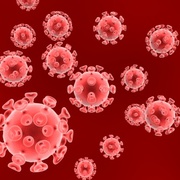 Photo: Getty Images
Photo: Getty Images
If you are diagnosed with HIV, you may want to immediately begin treatment to eliminate it from your body. Unfortunately, there currently is no cure for HIV. Antiviral drug therapies can be effective at controlling HIV, but there are serious side effects to the treatments.
HIV treatment generally consists of a combination or “cocktail” of anti-viral medications. These drugs work to limit the amount of virus in the body by preventing it from replicating or reproducing.
When it is most effective, anti-HIV drugs can reduce the amount of HIV in the blood (viral load) to a low enough level that it cannot be measured. But this does not mean the disease has been “cured.” If HIV treatment is stopped, the virus will immediately resume reproducing and the viral load will climb again.
One important decision you will need to make with your doctor is when to begin treatment. Antiviral drugs can have serious side effects including:
• Nausea, vomiting, or diarrhea
• Skin rash
• Shortness of breath
• Irregular heart rhythm
• Weakened bones or even bone death, especially in the hips
Once anti-HIV treatment starts, it cannot be stopped. This means a lifelong commitment to take drugs daily in order to maintain effective treatment. One of the dangers of treatment is if medications are not carefully taken every day according to instructions, the virus can become resistant to the drugs.
Once the virus becomes resistant to a particular drug, that drug will stop being effective. Over long-term treatment, drug resistance can seriously limit options for treatment.
In some cases the virus may maintain at a detectable level despite treatment. In these cases, resistance to the drugs in use will eventually develop, even though the drugs were taken correctly.
Doctors also measure the number of CD4 cells to track the progression of HIV. CD4 cells are the cells in the immune system which are vulnerable to HIV. When the virus takes over a CD4 cell, it is no longer able to function as part of the immune system, which leaves the body at higher risk for other infections.
In general, as the viral load of HIV rises, the number of CD4 cells in the body decreases. So the CD4 count is an indicator of the health of the immune system as well as the amount of HIV in the body.
Questions about whether to begin treatment typically arise in patients with a CD4 cell count between 350 and 500 cells/mm3. Some doctors believe treatment should begin when the count drops below 500, while others prefer to hold off until the CD4 count is lower.
Other indications that HIV treatment should begin include:
• Your HIV symptoms are severe or have progressed to AIDS
• You are pregnant
• You have HIV-related kidney disease
• You have hepatitis B and are being treated for it
(Mayo Clinic)
At the start of treatment, your doctor will check your CD4 count and viral load. These tests should be repeated every few months to make sure the treatment is working. Anti-HIV treatments should reduce the viral load to the point that it cannot be measured. However, even when your viral load is very low, you can still transmit the disease to other people.
Sources:
Mayo Clinic. HIV/AIDS: Treatments and drugs. Web. November 6, 2011.
http://www.mayoclinic.com/health/hiv-aids/DS00005/DSECTION=treatments-and-drugs
UCSF Medical Center. AIDS Treatment. Web. November 6, 2011.
http://www.ucsfhealth.org/conditions/aids/treatment.html
Medicine Net. Human Immunodeficiency Virus (HIV, AIDS). Eric S. Daar, MD. Web. November 6, 2011.
http://www.medicinenet.com/human_immunodeficiency_virus_hiv_aids/page5.htm#key
Reviewed November 11, 2011
by Michele Blacksberg RN
Edited by Malu Banuelos






Add a Comment1 Comments
A lot of what is posted here is certainly not true for everyone. This article seems like it is warning people against starting HART treatment early by emphasizing the terrible things that may happen. I am HIV+ (1.5 years now), I detected the virus within 2 to 3 weeks of being infected and began treatment within 2 months of the initial infection, regardless of CD4 count. There are many reasons I began treatment but 2 important reasons was to keep the virus from attacking my immune system and drastically reduce the risk of passing it to others. I am proud to say it was the best decision I ever did. I have had not ONE side effect to the medication and my latest CD4 count was 911. Recent research has showed that an undetected viral load reduces the risk of passing it to others by 96%! While that is not "prevention", it is pretty close. What we need to do as a society is become more educated on the advancements of medicine in HIV and update the guidelines we have regarding when to start treatment, side effects, and the fact that HIV+ people are not infectious human beings when the virus is undetectable. We have created a culture of fear surrounding HIV that is largely irrational in today's age. The fear factor is so pervasive it even permeates our judgment on when and if to start medication. If you were diagnosed with cancer or some other disease, you would not delay treatment until it progressed and the same holds true for HIV. Immediate treatment is the best advice I can give anyone...there will be a cure for this and you don't want to be cured of HIV but left with a permanently damaged immune system. It is all of our responsibilities to become educated and stop disseminating guidelines that were probably not seriously updated since 1990. Stop the stigma...it is worse than the disease itself.
November 11, 2011 - 10:47pmThis Comment